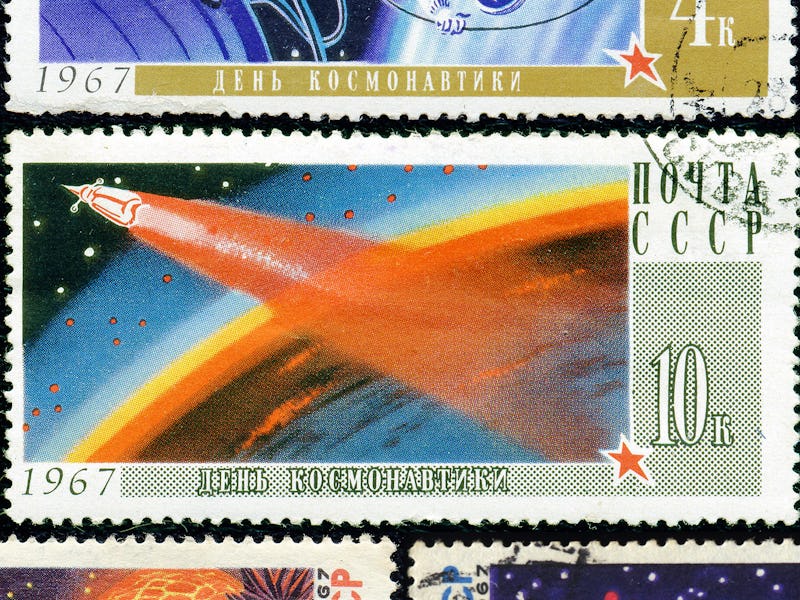Eccentric Russian Billionaires Are Investing in Their Weird Futuristic Visions
Why aren't American billionaires fun?

There seems to be a prevailing ethos in Russia — one that does not necessarily exist in other developed countries — that billionaires should be both eccentric and eccentrically humanitarian. There are numerable examples of oligarchs succumbing to this social pressure, but four names stand out: Yuri Milner, Sergey Brin, Dmitry Itskov, and Vasily Klyukin. These uber-rich are all funding massive projects designed to shift paradigms and enable cultural and technological transformation. Are they dilettantes? Maybe. But they also may hasten the discovery of intelligent life, the advent of extreme longevity or even immortality, and the creation of profoundly futuristic (kind of ugly) architecture.
When Russians look at their proud forebears, they see big dreamers sending dogs to space and attempting literal moon shots. When those same Russians acquire immense wealth, they seek to emulate the lionized and endlessly memorialized innovators of years past. Do they mind splashing out a bit on a legacy? No, they do not. And they also don’t necessarily buy into the pseudo-corporate culture around large-scale philanthropy that has grown so prominent stateside.
Last month, Russian physicist-entrepreneur Yuri Milner teamed up with Stephen Hawking to announce Breakthrough Starshot, a wild, expensive, speculative mission to send a nanocraft squadron to Alpha Centauri, the star system “closest” — if 4.37 lightyears may be called “close” — to Earth. Milner and Hawking have teamed up in the past on related endeavors: there’s Breakthrough Listen, which will become the most serious search for alien, intelligent life in the universe, and Breakthrough Message, which will reward $1 million to whoever can best envision how we will communicate with these as-yet-undiscovered distant life forms.
But Milner doesn’t stop there. He’s worth about $3.1 billion, and he’s all in favor of spreading that wealth — so long as the places to which that money spreads are places about which he feels passionate.
Space is one; the internet is another. Way back in 2009, he invested $200 million in Facebook, a move then touted as ludicrous and now touted as legendary. Two years later, Milner told Reuters that he anticipated the “emergence of the global brain, which consists of all the humans connected to each other and to the machine and interacting in a very unique and profound way, creating an intelligence that does not belong to any single human being or computer.”
It is not hard to find pictures of Milner hobnobbing with Sergey Brin, president of Google’s parent company Alphabet. Brin, who is worth $37.1 billion on paper — mostly Google stock forms — makes a dollar a year. Brin’s passion, it would seem, is longevity. He straight-up gave $250 million to Calico, Google’s anti-aging, longevity initiative. Name a crazy, eccentrically humanitarian project at Google, and Brin’s probably poured his own money into it.
The New York Times profiled Itskov back in 2013. His motivation, it seems, is genuine despair: humans have created a static, brutal world, and are doing their best to maintain this uncomfortable stasis. He’s for the most part uninterested in profit, but will invest in long-term projects if they hold promise.
On the face of it, 2045 seems an ambitious goal for physical transcendence. We still know next to nothing about how consciousness arises, let alone how it works. Even Mark Zuckerberg, whose social monolith leads the world in artificial intelligence research and development, has said that, “at a deep level no one actually understands how the human brain works.” Existing A.I.s just mimic and crudely exploit one of the mind’s countless, interworking capacities.
But, if we are going to enjoy disembodied and immortal life by 2045, we’d best get to enjoying and augmenting the real, physical world as long as we’re able. Luckily, there’s another billionaire Russian for that: Vasily Klyukin, architect and entrepreneur, thinks he’s got the mind needed to create a futuristic world in the present. (Don’t worry: he’s also written a novel, Collective Mind, which essentially portrays Itskov’s future society.)
In a sense, Klyukin is the Russian billionaire who throws the motivation behind all these investments and all this money spent into the sharpest relief. He wants the world to look different. He wants the world to look like what he thinks the world should look like. And he’s got the money to make it happen.